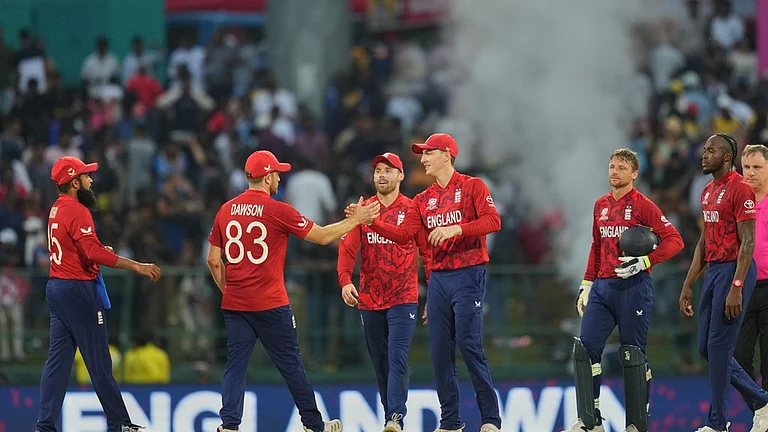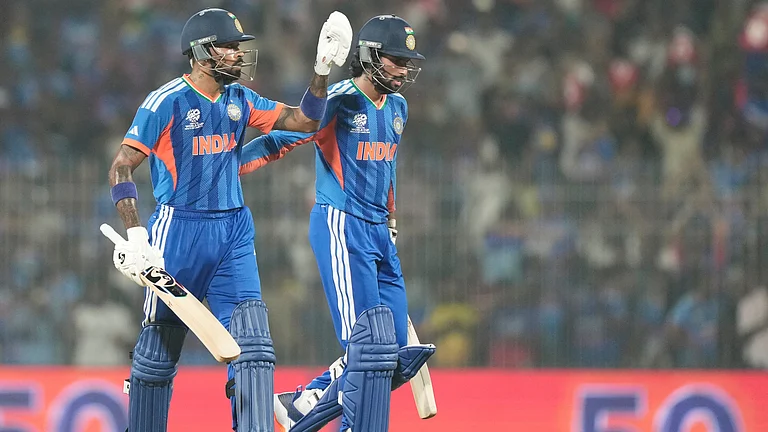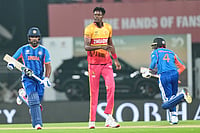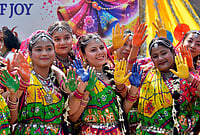India captain Harmanpreet Kaur was one of three Indians named by Time magazine in its list of the top 100 emerging leaders shaping the world. (More Cricket News)
The '2023 Time100 Next: The Emerging Leaders Shaping the World' list, released on Wednesday, featured three Indians, namely Kaur, Nandita Venkatesan and Vinu Daniel. It also featured Indian-origin Nabarun Dasgupta.
Underlining that time at the top has not dulled Kaur's competitive streak, the magazine said the Indian skipper's "fire and flair have been instrumental in transforming women's cricket from fringe curiosity to one of the world's most valuable sporting assets.."
A release issued by the magazine said Kaur, 34, secured "legendary status back in 2017 when she scored a then-record 171 not out off just 115 balls in a World Cup match against Australia, leaving spectators agog at her extraordinary talent".
It added that the cricketer is “still making headlines”, referring to her suspension for two matches and 75 per cent match fee fine in July for criticising umpires during India’s match against Bangladesh, which ended in a tie.
In March, Kaur was announced as the captain of the Mumbai Indians (MI) team ahead of the inaugural edition of the Women’s Premier League (WPL).
Five franchises of the WPL sold for a combined USD 570 million in January, and in March, Kaur led the Mumbai Indians to become the league’s first champions.
Venkatesan, 33, is a tuberculosis survivor who lost her hearing during her bout with a multidrug-resistant version of the disease, a side effect of the toxic cocktail of drugs she took during treatment.
She was named on the list, together with Phumeza Tisile, a South African health activist, who too lost her hearing to the disease.
Daniel owns a studio which uses mud and waste as the chief components to make structures that are both utilitarian and alluring, according to its website.
Indian-origin scientist Dasgupta helped launch a programme through a nonprofit that cleared bottlenecks stopping the opioid-overdose-reversing drug naloxone from getting to the frontlines.
Dasgupta also devised a system of swabbing street drugs and testing them, collecting valuable information to help scientists and drug users alike.
(With PTI inputs)


























